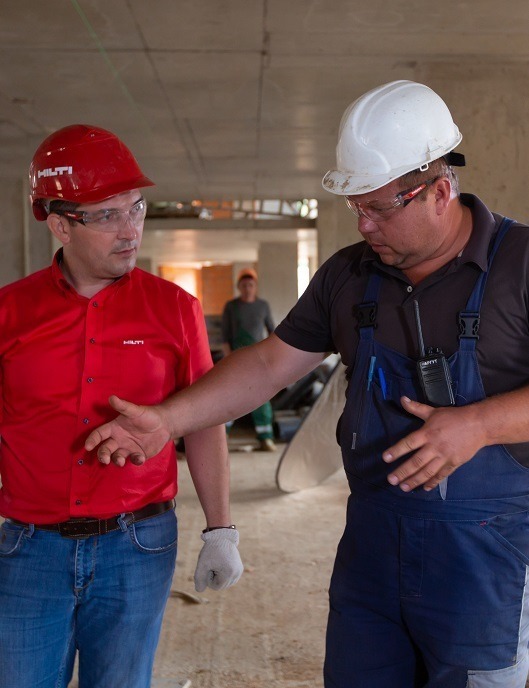
The Good, Bad, and the Tragic…
After buying a condo, a unit owner will have to pay regular (usually monthly) assessments. Dues can go up when the condo board creates a new budget. Usually, unit owners just roll with the changes. But when they’re hit with special assessments — lump-sum charges over and above the regular dues — they can get pretty annoyed.
If a homeowners’ association (HOA) lacks the reserves to fund capital improvements, owners can be hit with major charges they hadn’t budgeted for. How does a condo buyer prepare for this kind of thing? And why does this even happen? Can’t associations protect their residents by creating realistic budgets and planning for the unexpected?
Here, we talk about the good, the bad, and the ugly of special assessments by homeowners’ associations.
Collapse: The Case of a Missing Assessment
One year ago, on June 24, 2021, Champlain Towers South collapsed, killing 98 people. Board members for the condo building in the Miami suburb of Surfside, Florida had delayed a decision to spend $15 million on structural repairs before the tragedy. Part of the delay involved hesitance to impose a special assessment that would have had unit owners shelling out tens of thousands of dollars each.
The condo industry needs more transparency. It needs incentives to raise funds when and where they have to be raised.
Now, there’s a tool called the Association Insights and Marketplace (AIM) database. It scores condos on their governance practices. This can warn condo buyers, owners, and residents about neglected maintenance issues and low cash reserves at multi-unit properties, so people can better predict large assessments (or worse events) before they occur.
Condo owners themselves can get in the way of good governance. As they did in Surfside, unit owners tend to resist monthly increases and special assessments. The AIM database rewards condos reputationally if they have reserve funds to cover major maintenance needs.
There’s also a nonprofit working in this area: Transparency HOATM. It scores condo properties in multiple states, using a ranking system. This tool is free.
These and similar innovations just might press condo managers and boards to be transparent about their finances, their maintenance history, and their ability to function well. Boards should also carry enough insurance to deal with weather damage and other costs not anticipated when board members create reserve accounts.
Blindsided by Assessments: Seniors Fear Losing Their Homes

Another group of Floridians fear losing their condos, as each unit owner faces a sudden $10,000 special assessment. The Cateleya Shores property at Mangonia Park, run by HG Property Management, is imposing the assessment in two installments, due in July and November.
In some cases, assessments have to be put to a unit owners’ vote. (State law might require votes for special assessments over a certain percentage of the board’s budget.) When Cateleya Shores owners voted, the assessment proposal got 121 votes in favor, 67 against, and 52 abstentions. The vote, to collect money from the owners to fix dozens of roof leaks, is under fire because all of the “yes” votes came from just one person — an investor who not only owns all those 121 units, but also holds the position of HOA board president.
Several other board members say they were never consulted. Now, they worry about the drastic financial burden on seniors and other unit owners.
And in any case, should one owner wield so much authority over all others? Florida legislators are now examining the question.
Predicting Assessments: What Condo Buyers Must Know
Warren Buffet famously said it’s only when the tide goes out that you know who’s been swimming naked. In the condo management context, it’s hard to tell an HOA is underfunded or badly governed until some crisis occurs to test it.
At least you can look into the basics of how things are run. When you buy, you’ll sign an agreement with the HOA. It’s important to study the rules you’re agreeing to follow. Inside the Covenants, Conditions, and Restrictions (CC&Rs) is information on how dues and special assessments may be levied.
HOA boards must follow their own assessment rules, the notice and voting requirements, and monetary limits outlined in their governing documents.
Your monthly dues (regular assessments) will pay for the groundskeeping and maintenance, the office salaries, lifeguard pay, insurance premiums, and anything else that constitutes the day-to-day operations of the property outside your individual unit’s walls. Learn how much is set aside in the cash reserve account. This, too, is funded by everyone’s monthly dues.
If some owners fall behind in their HOA dues, the whole property’s budget suffers. This can weaken the association’s financial health. Every homeowner agrees to be subject to nonpayment penalties, usually including:
- Late fees, fines and interest.
- Reasonable costs of collection and attorney’s fees where applicable.
- Revoking of pool tags or access to other amenities.
- Liens against the value of a unit, which are filed publicly with the county recorder of deeds, so owners should take care to avoid them.
Owners are able to request a hearing with the board if they wish to dispute a penalty. Consult the property’s governing documents for details.
If the HOA is following its own rules and not ignoring any restrictions in the state laws, and if the assessment serves the property’s interests, owners will have to pay up. Owners under financial stress could ask the board if it will allow payment in installments.
Pro tip: Keep good records and consult with a tax pro. You may be able to claim a deduction for HOA assessments. A condo owner’s insurance may cover the costs of HOA special assessments through an endorsement called loss assessment coverage.
Your mortgage consultant or a trusted insurance agent can be a good sounding board when you’re deciding whether to buy into a condo property. By reviewing the budget, the cash reserves, and the master insurance policy, these professionals might help you form an opinion on a property’s financial health. And if the property has a strong insurance policy, it’s less likely to hit the owners up for extra funds to cover an unplanned expense.
Finally, one of the best indicators of future assessments is the age and condition of the property’s infrastructure. (The Surfside condo building was awaiting its 40-year engineering recertification when it fell.)
HOA board members are unit owners. They need no special expertise to serve in their roles. They may miss warning signs that professionals would readily observe. As a buyer, you have the prerogative to make an offer contingent on a foundation and structural inspection. With older buildings, that could be a very good idea.
Supporting References
Jeff Collins for The Orange County Register: A Year After Surfside Collapse, Two California Startups Are Creating Carfax-Like Reports for HOAs (updated Jun. 23, 2022).
Jessica Bruno for Contact 5 WPTV.com: Mangonia Park Condo Community Fearing They’ll Lose Their Homes (updated Jun. 7, 2022 by NBC 5, West Palm Beach).
Hignell HOA Management Blog: What Can an HOA Board Do If Owners Refuse to Pay Special Assessments? (Mar. 21, 2018).
HOAManagement.com: What Are HOA Assessments? Are Homeowners Obliged to Pay Them? (Jan. 6, 2020).
CondoManagerUSA.com: When Should Your Association Levy HOA Special Assessments?
And as linked.
Photo credits: Live on Shot and Aleksey, via Pexels.
